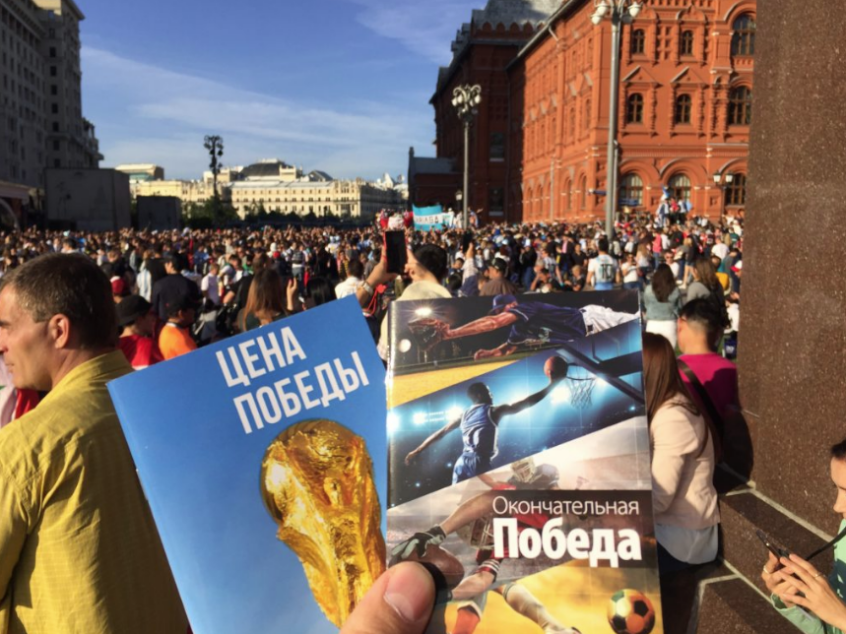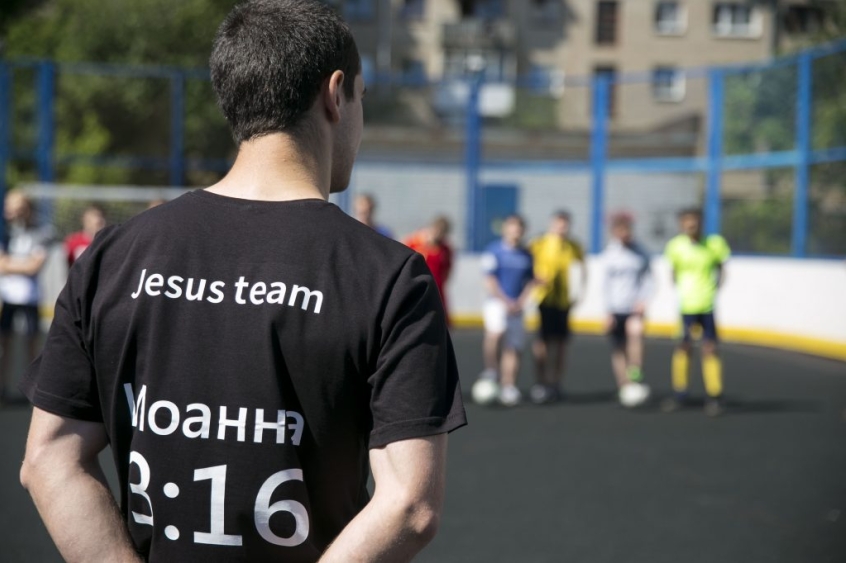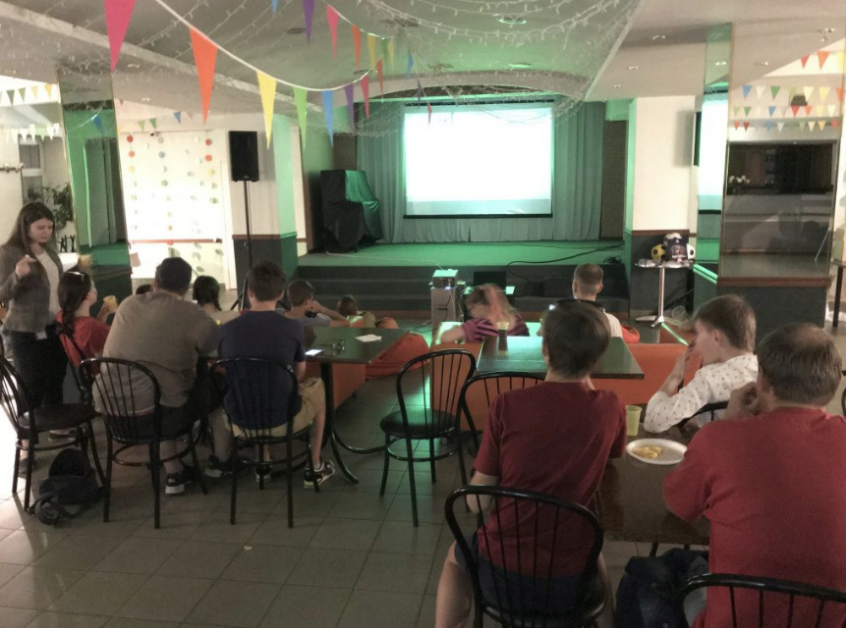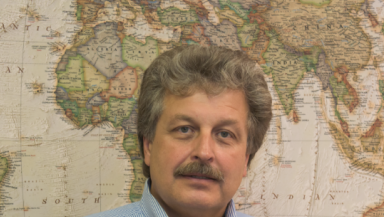The FIFA World Cup finals take place every four years and attract a television audience of millions. They also draw hundreds of thousands of fans from all over the world to attend matches in the host country. Millions more are caught up in the excitement of the event, watching games on TV in bars and at outdoor screenings. For a few weeks, everyone goes soccer mad – and for churches, it's an unrivalled opportunity to share the Gospel.
In Russia, evangelistic opportunities have been limited recently by the 'Yarovaya Law' that limits the freedom of religious people to share their message. In spite of this, an extraordinary initiative by local churches spearheaded by US-based Mission Eurasia has seen hundreds of thousands of Gospels and pieces of Christian literature distributed and thousands of people attending special match screenings.
Christian Today interviewed Mission Eurasia's president Sergey Rakhuba by email about the remarkable work of churches on the ground in Russia.
CT: What has been the response of evangelical churches in Russia to this gospel opportunity?
SR: Despite the limitations placed on religious freedom by the Yarovaya Law, evangelical churches in Russia see the World Cup as an incredible ministry opportunity. And after they realised that the regulations laid out in the Yarovaya Law wouldn't be able to hinder their ministry activities within their church buildings, they expanded their original ministry plans. At first, many churches were only planning to host match screenings and distribute Scripture pieces to those in attendance, but after they saw the potential impact they could have, they also started distributing Scripture pieces through street evangelism efforts in their cities. Furthermore, many church leaders have been so encouraged by the scope of their impact during the World Cup that they are now expanding their other ministry initiatives to reach even more people in their communities with the gospel.

CT: Has there been any pushback from the authorities?
SR: A few teams of Mission Eurasia's School Without Walls (SWW) students have experienced pushback, particularly in Kaliningrad, Moscow, and Yekaterinburg, but this pushback usually just involves warnings from the local authorities. In most cases, they order the SWW students to stop distributing Scripture pieces, but they often don't enforce these orders. However, three teams of SWW students (one in each of the three aforementioned cities) were detained for failing to adhere to the authorities' warnings. While they were released without charges, their Scripture pieces were confiscated. But despite these unfortunate occurrences, we are very encouraged by the work the Lord is doing in Russia during the World Cup, and overall, the pushback we have experienced has been much less intense than we expected.
CT: It seems like a significant moment in the life of Russian evangelical churches – is this how it is perceived there?
SR: Evangelical churches in Russia see the World Cup as one of the most significant ministry opportunities in recent years. While the Winter Olympics that took place in Sochi in 2014 were also a great chance to share the gospel with the unreached, the World Cup is even more significant, because the Russian people are much more interested in soccer than in the Olympic Games. As previously mentioned, many churches all throughout the country expanded their original ministry plans after seeing how many people they could reach with the gospel. We are currently seeing more energy and passion for evangelism among Russia's evangelical churches than we have in many years, and we are very encouraged to see how they are taking full advantage of the ministry opportunity that God has provided in the World Cup.

CT: Can you tell us more about what the churches have been doing?
SR: In partnership with nearly 400 churches in 50 different cities throughout Russia, Mission Eurasia's SWW students have distributed about 500,000 Scripture pieces during match screenings at churches, street evangelism efforts, summer Bible camps for children and youth, soccer tournaments, and many other evangelistic events. By July 15, when the World Cup ends, we will have distributed 300,000 copies of a special-edition Gospel of John, 200,000 New Testaments in the Russian language, which include a QR code that directs readers to additional discipleship resources and directions to local churches, and 100,000 copies of Spark magazine, which Mission Eurasia printed in partnership with ShareWord Global.

Along with Scripture distribution efforts, we estimate that around 10,000 people have attended match screenings and other evangelistic events at our partner churches. And in order to build upon the success of these efforts, these churches are also planning to form 1,800 new home Bible study groups and lead sports and day camps for up to 15,000 children in their communities after the World Cup ends. Through our efforts during the World Cup, along with our partner churches' follow-up initiatives, we estimate that we could reach up to 3 million people through this strategic ministry project.
Many lives have already been transformed by the gospel, and among those who have been impacted is Arsen, a shoe-seller in Omsk. Talking with Mission Eurasia volunteers, he complained about the Russian soccer team's last performance and spoke of the need for a good coach. 'We then told him about a team that could change the entire course of humanity, because they have the best coach: Jesus,' said Konstantin, Mission Eurasia's local SWW coordinator. When Arsen was given a copy of the Gospel of John, he 'asked several questions about what he was reading in God's Word, because he wanted to make sure that he understood everything correctly', Konstantin said. We believe that God is working in Arsen's heart, and we pray that He will come to know Christ as his personal Saviour.
CT: What is your take on how things will develop regarding religious freedom – are there any grounds for optimism?
SR: There is always hope that religious freedom will increase in Russia, and Mission Eurasia is continuing to pray that God would be at work in the hearts of President Vladimir Putin and the nation's other political leaders. Many communities in Russia are very open to the gospel, which is evidenced by the great number of people who have gratefully accepted our Scripture pieces during the World Cup. Evangelical churches throughout the nation are also much more passionate about proclaiming the gospel in their communities than they have been in past years, and we can see how religious persecution is strengthening them to stand firm in faith.

Through our World Cup Scripture Outreach, we have realised just how open the Russian people are to the gospel. We have also been so encouraged by how loyal some local authorities are to their communities, rather than to the Yarovaya Law. Despite their orders, they can see the positive effect that the gospel has on their cities, and because they want their communities to thrive, they are sometimes willing to ignore the law in favour of better lives for their friends and families.
We are praying for spiritual revival in Russia, but we also cannot deny that this is a very challenging time for evangelical Christians living in this nation. No matter what laws are passed or how much persecution the evangelical church in Russia endures, we believe that God is ultimately in control and will continue to grow his Kingdom.













